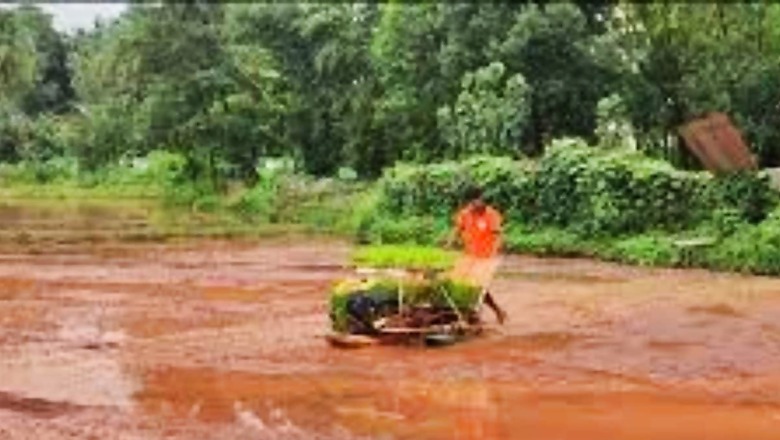
views
The Yantrashri Scheme is one of the most successful initiatives of the Dharmasthala Rural Development Project, which focuses on religious, social, and economic development in Karnataka’s Dakshina Kannada. Farmers today are gradually moving away from rice cultivation and turning to other commercial crops. However, even though a farmer may work all day cultivating these crops, all he needs to satisfy his hunger in the afternoon is a bowl of rice. Crops like areca nuts, rubber, and cocoa cannot fulfil the basic need for food.
The Yantrashri programme, organised by Veerendra Heggade, addresses this issue. It is being implemented across the state through the Dharmasthala Village Development Scheme and has been running for the past 10 years across 90 taluks in the state. In cases where farmers have stopped paddy cultivation due to numerous challenges, such as labour shortages, these farmers are contacted and encouraged to adopt mechanised farming through the Dharmasthala scheme.
Through the Dharmasthala Gramabhivriddhi Yojana, machines for every stage of paddy cultivation, from ploughing to harvesting, are made available to farmers on a rental basis. Experts associated with the village development plan also educate farmers on advanced methods, such as growing rice plants in trays, to improve paddy cultivation techniques.
Over the past decade, mechanised farming has been conducted on 25,000 acres of land each year through the Yantrashri programme. This year, the target has been increased to 35,000 acres, with 20,000 acres already cultivated.
In Puttur Taluk, located in the Dakshina Kannada district, it is planned to plant paddy in around 500 acres, and this goal is expected to be achieved in the coming days. The machinery required for paddy cultivation is operated by personnel trained through the village development scheme. The Yantrashri programme stands out as a unique and impactful initiative among the various schemes conducted in the Dharmasthala constituency.


















Comments
0 comment